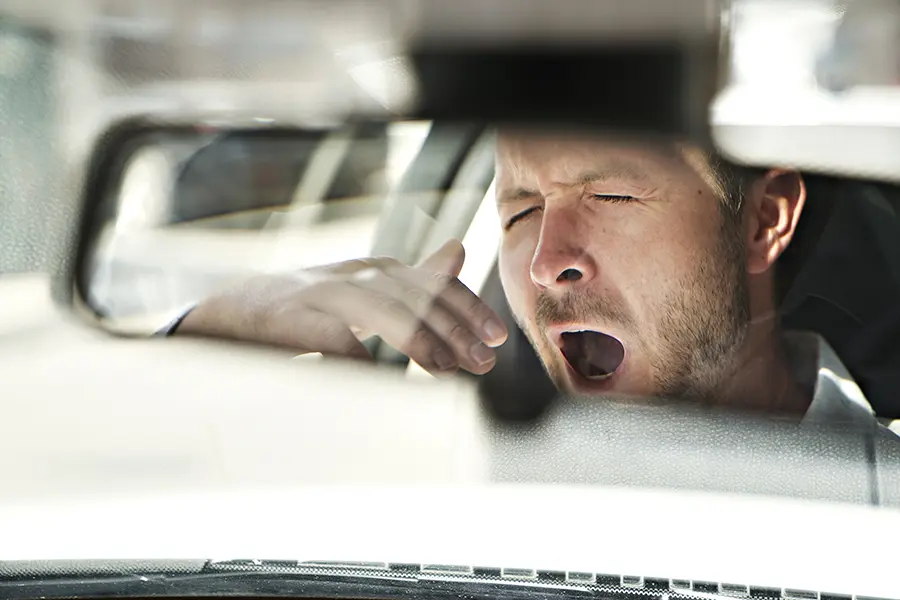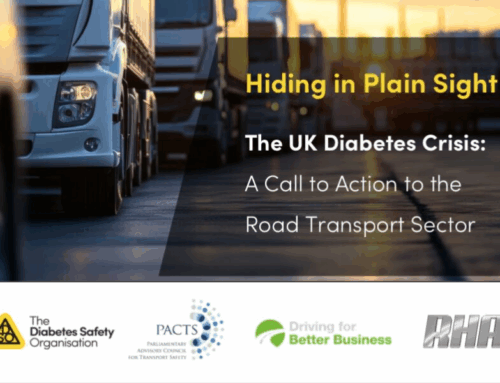Driver Fatigue
Too tired to drive? Driver fatigue causes hundreds of incidents each year – it’s involved in 20% of all collisions. Not only do drivers have a duty of care to ensure that they are sufficiently alert to drive safely, but fleet managers and operators also have a duty of care to make sure that drivers are educated about fatigue and are managed to prevent them driving when tired, or sleepy.
This can be a tall order given that a driver’s sleep pattern usually falls within their personal time.
However, companies should have:
– clear, explained policies on fatigue
– ensure that organisational stress, working or shift patterns do not cause undue fatigue
– foster a culture in which drivers can report fatigue caused by poor sleep or life changes without penalty
Why is fatigue so dangerous?
Fleet drivers typically do far higher mileage than non-fleet drivers, and will usually be driving in the final leg of their shift. They may also be more likely to drive at night or in the early hours of the morning when our bodies’ natural rhythms are geared for sleep.
Fatigued drivers are far more likely to:
– Respond emotionally rather than rationally when driving
– Have poor lane discipline
– Have fluctuating speed
– Have poorer reaction times and coordination
Furthermore very tired drivers can suffer microsleeps, which they may not be aware of but mean they are not processing what’s happening and will do nothing to prevent a collision,
Fatigue is as dangerous and affects your driving as much as being over the legal alcohol limit. A driver who has been awake for 17 hours has twice the normal collision risk. A driver who is awake for 24 hours is seven times more likely to have a collision.
Fatigue is very common
Several studies have shown that many UK adults seriously underestimate the amount of sleep they need and are permanently in sleep debt. Experts believe adults require between seven and eight hours of good quality sleep, with six hours being the absolute minimum. The Royal Society for Public Health says that 40% of UK adults routinely get insufficient sleep, and 20% seek help for poor quality sleep.
This can have a devastating effect on long term health, as poor or insufficient sleep is linked to poor mental health, diabetes, stroke risk, and many other debilitating conditions. It also means that at any one time a significant number of drivers are chronically sleep deprived.
Middle-aged overweight men – who are significantly over-represented in the HGV driver sector – are also most at risk of sleep disorders such as sleep apnoea. This is a very serious condition, for their health as well as their driving safety. However, screening and treatment is effective, and all such drivers with any symptoms of fatigue should check with their doctor.
Fleet responsibilities
Driving tired is not an offence. However, not taking reasonable precautions as a business to ensure that drivers are fit to drive could lead to prosecution if the driver was involved in a serious incident. That means employers need to be able to prove the steps that they are taking to make sure their employees only drive when fit to do so – this should be documented in your driving for work policy.
Fatigued drivers can also face charges of death by dangerous driving or death by careless driving if involved in a fatal collision. The maximum penalty for death by dangerous driving is a prison sentence of 14 years under UK law.
Keeping drivers fit to drive
- Encourage drivers to get enough sleep
- Encourage them to eat healthily and avoid heavy carbs during the day, and to keep well hydrated
- If a fleet driver is too tired to continue a journey, have them relieved or allow them to park up safely to rest properly before moving on
- Do not rely on caffeine – this is a temporary and ineffective solution. The only effective solution for fatigue is sufficient sleep.






